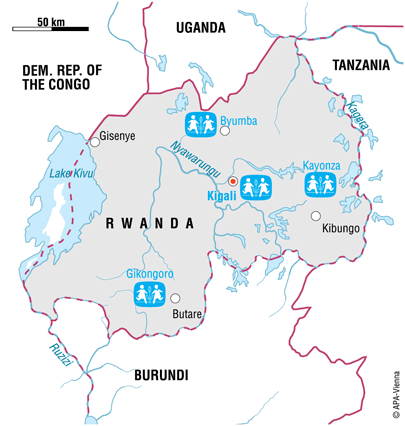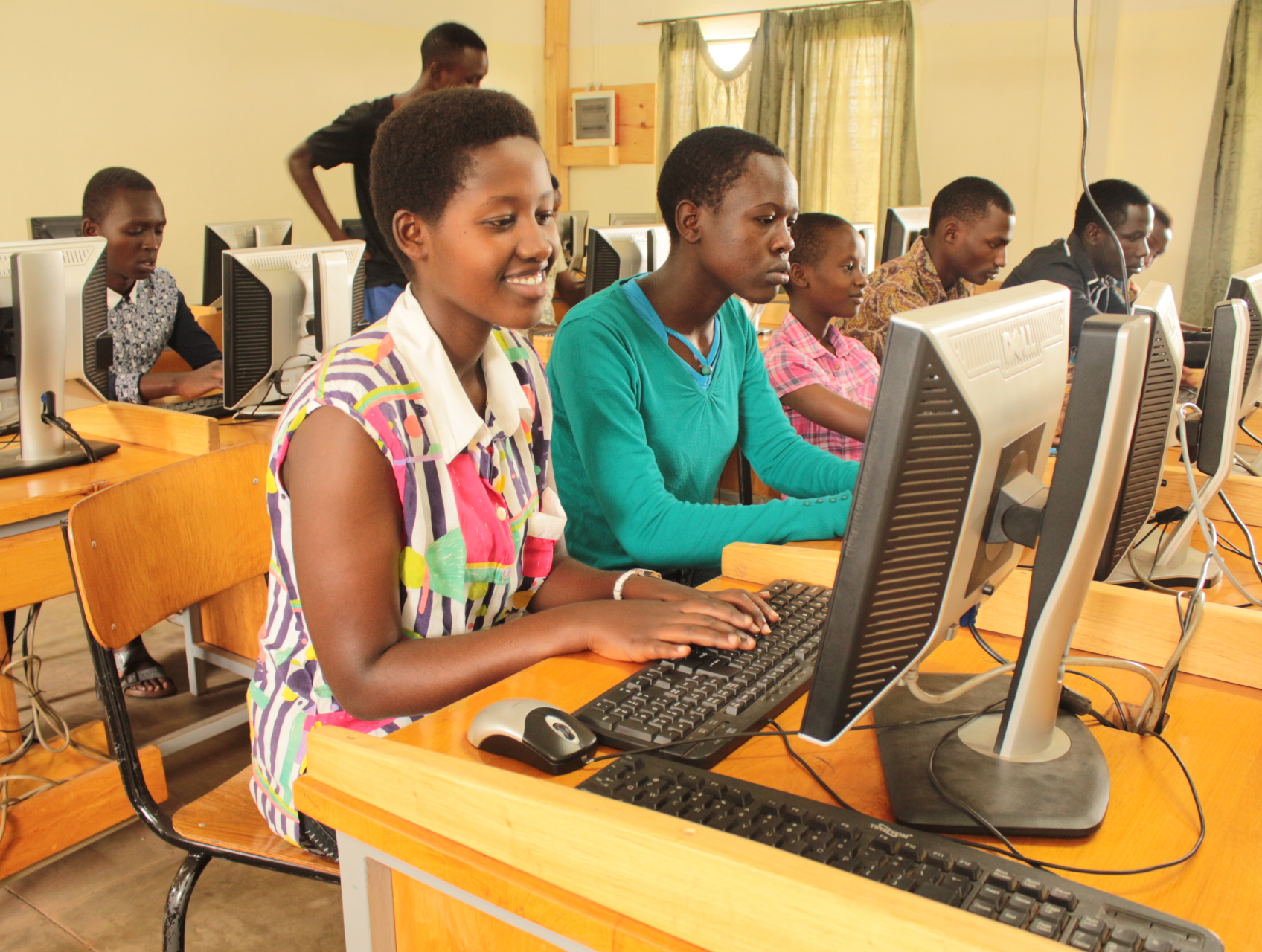
Vi er i Rwanda
39 per cent of Rwandans live in poverty
The Rwandan government has introduced some measures to reduce poverty, widen the range of economic activities and develop the country’s infrastructure.
Poverty has dropped significantly over the past years but over 39 per cent of people continue to live in poverty. Thousands of Rwandans do not have access to proper housing, safe drinking water and proper sanitations. Poverty is particularly high in rural areas. Most people live off farming, but many families struggle to produce enough crops to live off.
HIV/AIDS and malnutrition affect many families
In spite of the fact that the Rwandan government has made the fight against infectious diseases a national priority, HIV/AIDS remains one of the country’s major public health concerns. Around 2,9 per cent of the population is affected, which means that the lives of many families and children are marked by the disease. However, over recent years, the availability of anti-retroviral therapy has improved.
Although the general health of the country has improved, malnutrition is still a problem. Around 44 per cent of children, mostly from rural areas, do not get the right food they need for their development.
Children are in need of protection
An estimated 590,000 children are growing up without their parents, and many more are at risk of losing parental care.
Rwanda’s under-5 mortality rate remains high at 50 per 1,000 live births. Most deaths are preventable: malaria, chronic undernourishment, diarrhoea or pneumonia are the main illnesses that children die from. In addition, around 27,000 children are living with HIV/AIDS.
The majority of children start primary school, but only a few finish school. Although parents do not have to pay fees, the additional costs of school materials and uniforms mean that many children drop out. Around 29 per cent of Rwandan children are forced to work in order to contribute to the family income.
SOS Children's Villages in Rwanda
SOS Children’s Villages has been working in Rwanda since 1978. We are currently reviewing the way in which we support vulnerable families and children in Rwanda. The national childcare policy specifies that children without parental care should live with family members, whenever it is possible and in the child’s best interests. For many years SOS Children’s Villages provided care in SOS families to children who had lost parental care. But in light of the childcare policy, SOS Children’s Villages is currently playing a key role and working with the government in evaluating whether children in our care can now return to live with their families. If this is possible, we will support them during the period of change and adjustment.
Strengthen families: We work with local community based organisations to support families so that they can stay together. We ensure access to health services and education. We train adults so that they can get a job or start their own business. We also provide counselling to parents.
Care in SOS families: SOS Children’s Villages will continue to provide some direct care to children in SOS families, at least until a more permanent home can be found for them.
Support for young people: We support young people until they are able to live independently. We provide them with training and liaise with local businesses so that they can gain work experience.
Education: Over 2,200 children attend the kindergartens, primary and secondary schools that we run throughout the country. We also run a vocational training centre in Kigali.
Support for street children: We care for children who used to live on the streets, so that they get used to a stable way of life. Wherever possible, we will work with the children’s biological families, and give them the support they need so that can live together again.
Mental health care: In 2017, SOS Children’s Villages started working to improve the mental health of children and young people. In addition to training mental health and care professionals, we will provide counselling.
-Young-people-learning-ICT.jpg?width=800)